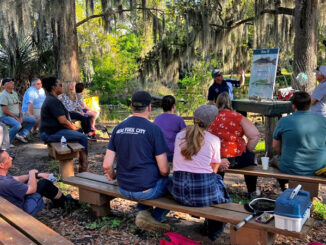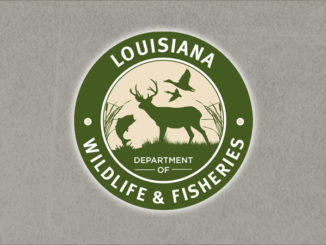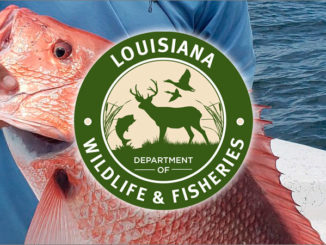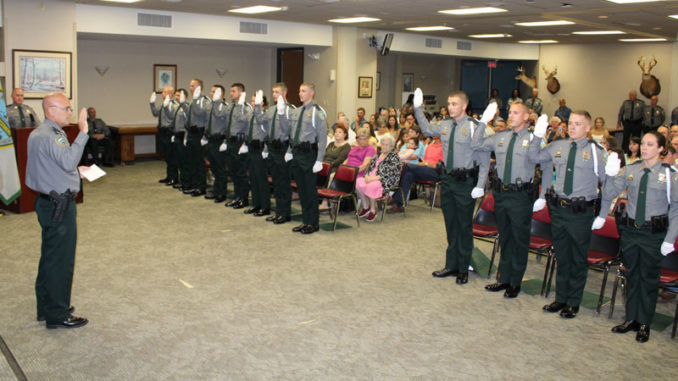
The Louisiana Department of Wildlife and Fisheries (LDWF) Law Enforcement Academy graduated its 34th class of cadets into the ranks of LDWF Enforcement Division agents at a ceremony in Baton Rouge on June 29.
After six months of training at the academy, 17 newly commissioned agents are ready to begin enforcing hunting, fishing and boating regulations that govern the use of the state’s natural resources.
LDWF Secretary Jack Montoucet was the keynote speaker at the graduation and told the cadets, “we honor you – our cadets — because you have completed your training that could have only been achieved through dedication, and a desire to be the best that you can be – both individually and as a team.”
Col. Chad Hebert, head of the LDWF Enforcement Division, presented certificates and recited the Oath of Office making the cadet’s transition to commissioned agents official. “Graduating a cadet class is always a proud day for both the cadets and their loved ones, but also for me as the Colonel and for our training staff,” said Col. Hebert. “These 17 cadets proved to us that they are ready to begin their enforcement division careers as agents after making it through our six month academy.”
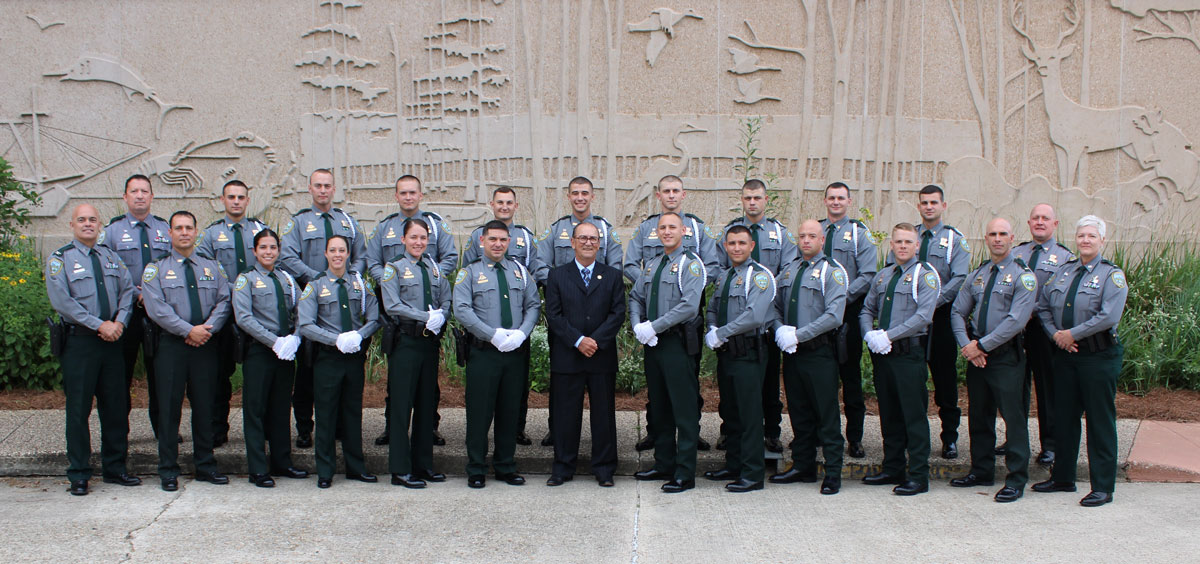
(back row) Lt. Col. Travis Huval, Agent Mason Castello, Agent Dustin Barton, Agent Micheal Thacker, Agent Cody Salpietra, Agent Jebadiah Kraft, Agent Breylan Kemp, Agent Tracen Francis, Agent Christopher Pippin, Agent Jade Duhon, and Major Clay Marques. (Photo courtesy LDWF)
The 17 new agents are:
- Austin Anderson, of Raceland, assigned to Lafourche Parish
- Troy Autin, of Houma, assigned to Lafourche Parish
- Dustin Barton, of Winnfiled, assigned to Winn Parish
- Mason Castello, of Baton Rouge, assigned to Orleans Parish
- Jade Duhon, of Rayne, assigned to Iberia Parish
- Heather Fitzgerald, of Ponchatoula, assigned to Jefferson Parish
- Tracen Francis, of Minden, assigned to Natchitoches Parish
- Breylan Kemp, of Minden, assigned to Desoto Parish
- Jebadiah Kraft, of Ponchatoula, assigned to Terrebonne Parish
- Stephen LaCombe, of Baton Rouge, assigned to Morehouse Parish
- Jamyson Loomis, of Vidalia, assigned to Concordia Parish
- Chelsea Moudry, of Brenham, Texas, assigned to Calcasieu Parish
- Victoria Onebane, of Rayne, assigned to Iberia Parish
- Christopher Pippin, of Lake Providence, assigned to East Carroll Parish
- Cody Salpietra, of Zachary, assigned to Terrebonne Parish
- Micheal Thacker, of Hineston, assigned to Sabine Parish
- Clinton Willis, of Longville, assigned to Beauregard Parish
During the graduation ceremony, Fitzgerald was awarded the physical fitness award for scoring the highest on the physical fitness assessment test. Duhon received the firearms award for the best marksman in the class. Kraft received the academic award for having the highest grades. Kraft also won the overall award, which is a cumulative score from the firearms, academic and physical training categories.
At the academy, cadets train to enforce the state’s recreational boating laws, the state and federal wildlife and fisheries laws and general law enforcement work on the state’s many wildlife management areas. The academy also covers general law enforcement training equal to that of other state law enforcement officers.
The graduating agents fill vacancies in LDWF’s Enforcement Division and will be assigned to a field-training officer for their first six months of duty. Now part of the agency’s commissioned officer staff, the agents will join the ranks of those patrolling land and water to primarily detect game, fish and boating law violations. These duties require travel into Louisiana’s forests, swamps, fields, streams, bayous, lakes, marshlands, the Gulf of Mexico and on the state roadway system
